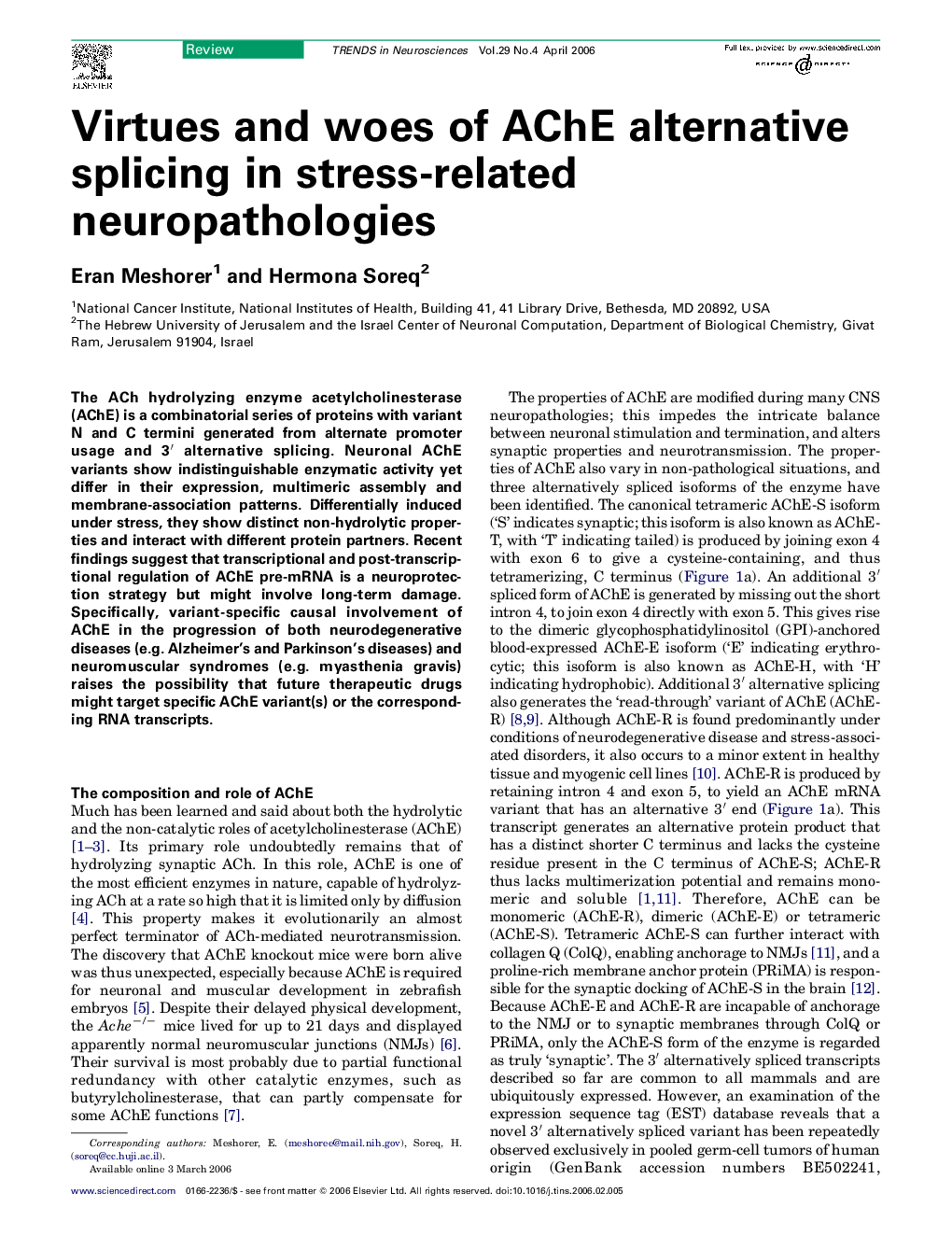| Article ID | Journal | Published Year | Pages | File Type |
|---|---|---|---|---|
| 4354910 | Trends in Neurosciences | 2006 | 9 Pages |
The ACh hydrolyzing enzyme acetylcholinesterase (AChE) is a combinatorial series of proteins with variant N and C termini generated from alternate promoter usage and 3′ alternative splicing. Neuronal AChE variants show indistinguishable enzymatic activity yet differ in their expression, multimeric assembly and membrane-association patterns. Differentially induced under stress, they show distinct non-hydrolytic properties and interact with different protein partners. Recent findings suggest that transcriptional and post-transcriptional regulation of AChE pre-mRNA is a neuroprotection strategy but might involve long-term damage. Specifically, variant-specific causal involvement of AChE in the progression of both neurodegenerative diseases (e.g. Alzheimer's and Parkinson's diseases) and neuromuscular syndromes (e.g. myasthenia gravis) raises the possibility that future therapeutic drugs might target specific AChE variant(s) or the corresponding RNA transcripts.
